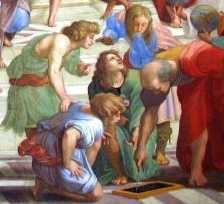A new blog
For a long time I have tried to pray the Latin psalms with the eventual goal of being able to pray the Liturgy of the Hours in Latin--with understanding.
I moved toward my goal in stages.
Of course the psalms I know well enough in English to be able to figure out three-fourths of the Latin, even having studied much vocab.
Next came the antiphons, but most of those come from Scripture, many of them from the text of the Psalm itself. But I was still stumped by some antiphons, so I took the time to copy them from the English version and place them under the Latin.
The prayers I was able to handle the same way, since the Latin is more or less translated in the English version. Fr. Z's work on the collects really helped me raise the standard for understanding. His meditations on the prayers are outstanding, uplifting and a great work of scholarship, in my layman's amateur opinion.
The prayers of the faithful were a low priority, since I skipped them a lot, due to time and interest. Fr. Z says they are a recent innovation in the Breviary, which has led me to take them less seriously. The content of the these Preces is sometimes profound, sometimes laughably 60's in orientation, but usually general enough that if I just substitute my own spontaneous prayers for people in my life who need prayer, I get the same effect.
This leaves the Hymni. Until the Mundelein Psalter came out last year, good translations of the Latin hymns found in the LotH (and the Liber Hymnarius) were hard for me to find. Purchasing that wonderful resource will eventually happen (it is down the priority list). But until then, I hope taking on the labor of this blog will force me to learn more Latin.
The idea is that I will feature a hymn every few days on the blog. I will provide, not a smooth or even literal translation, but rather an attempt to capture the flavor of the poetry by looking up the words in the few lexical instruments I possess (unforntunately not the great Lewis & Short dictionary Fr. Z is constantly effusing about) and writing a very rough indication of what we are singing when we sing the Latin hymn.
One question I immediately had was what tune to use to sing the hymns. Finally buying a copy of the Liber Hymnarius was essential for this. But I have since learned that other tunes for these Hymni exist. A Dominican priest who will soon be stationed at the school where I teach assured me that the Dominican melodies he knows of are even better than the Benedictine ones they sing at Solemnes. I am anxious to learn these hymn tunes.
But others have blogged about the melodies, like this girl. If I figure out how to post mp3's or sound files, I will record myself singing so we can sing hymnos debitos together.
